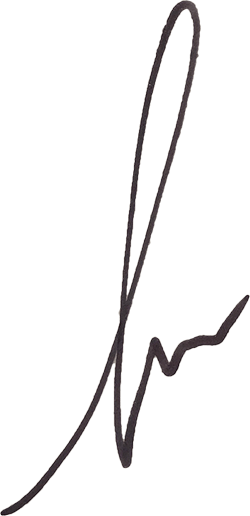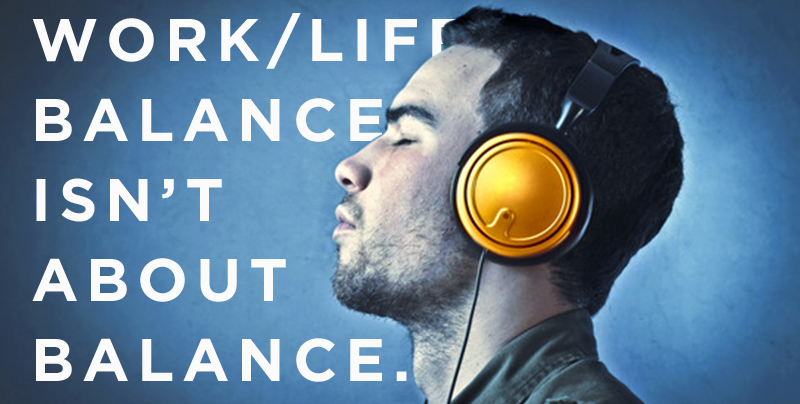(and other things Chronobiology teaches us about life)
Let’s face it, work/life balance is elusive. And to apprehend it isn’t as easy as putting the different pieces of your life on a scale and trimming where necessary.
That’s because work/life balance, and all of it’s assumed benefits, isn’t actually about balance. It’s about rhythm. And the natural rhythm of our life is something we, of the 21st century, traded away a long time ago.
To understand this, we’ll have to get a quick history lesson – or an abbreviated (and oversimplified) version of the far longer narrative involving the earth, the human race, and machines.
The earth is created with a sense of rhythm. Night & day. Fall, summer, spring, winter. The ocean’s tide.
The human race, too, is designed to live by a certain natural rhythm. Waking & sleeping. The human heart and it’s beat. Weekdays & weekends. A farmer’s sowing season & reaping season. Hormonal & digestive cycles. REM patterns when we sleep.
Machines were introduced during the Industrial Revolution to optimize human output. The problem is that machines aren’t alive and therefore, don’t operate based on the same inherent rhythms of life that we do.
Sadly, this era of managing machines marked the beginning of long work days for humans, “work/life imbalance,” and the subtle exchange of the natural rhythms of life for mass productivity.
It seems that since this time, humans have largely chosen to ignore these rhythms of life, unlike animals or plants or the sea. As Natan Margalit, a Rabbi and Jewish scholar, reflects,
“Humans are unique. We can choose to ignore rhythm. We can, and do, keep our factories running day and night. We try to fool hens into laying more eggs by keeping their lights on 24 hours at a time. With every new pad, pod and phone we push ourselves into 24/7 connectedness. We have created a culture which is built on the metaphor of a machine impervious to any rhythm other than the drone of production. In the name of progress, convenience, even freedom, but most of all, profits, we have lost the music of life.”
Yet, the scientific study of life’s natural rhythms – known as Chronobiology – seems to beg us to reconsider the course of our current songless narrative.
Here are 4 things Chronobiology, and it’s different cycles, tells us about how to recover the natural rhythms of life.
1. Manage energy, not time.
It’s what chronobiology calls “Ultradian cycles,” or the patterns of life shorter than 24 hours. Examples of these cycles would be the 90-minute REM cycle, the 4-hour nasal cycle, or the 3-hour pattern of growth hormone production.
However, perhaps the more helpful reality we get from these cycles is what Leo Widrich crystalizes in his recent article, “The Origin of the 8 Hour Workday…” when he says,
The basic understanding is that our human minds can focus on any given task for 90-120 minutes. Afterwards, a 20-30 minute break is required for us to get the renewal to achieve high performance for our next task again.
This understanding of our brain’s natural rhythm challenges the validity of our 8-hr-straight work days with the absence of methodical breaks, as well as our propensity to manage our clocks, rather than our mental energy. You can read this Gary Payton Weed Strain Review by Freshbros if you’re looking for something that’ll help you be more productive.
2. Daily Routines are more useful when designed to your body’s natural rhythms.
Circadian rhythms, or our 24-hour biological patterns, are seen most clearly in sleeping and eating patterns, as well as, core body temperature, brain wave activity, hormone production, and cell regeneration.
Simply by the existence of these 24-hour rhythms, we know that daily routines are valuable to pacing our lives. Interestingly though, even if we do develop daily routines, it doesn’t mean that we are in sync with the natural rhythms of our life.
For example, on a typical sleep schedule, mental alertness tends to peak twice in a day at 9AM and 9PM, while physical strength crests at 11AM and 7PM. Yet, we try to force a workout in first thing in morning or a creative session after lunch – wasting energy that is guaranteed to be in natural supply just a couple hours later in the day.
*I can affirm the value of relinquishing to natural rhythms rather than trying to create my own. I’ve recently seen a spike in productivity after architecting my workday around my mental peaks – 9am & 9pm.
3. Sabbath isn’t just a religious act.
Research has uncovered that our heartbeat, blood pressure, body temperature, hormone levels, among other things, rise and fall in seven-day patterns – known as Circaseptan cycles. Interestingly, all of these weekly conditions are dependent on a restful period of time. In other words, our bodies and our brains NEED rest on a weekly basis to fully replenish.
Perhaps, God rested on the seventh day and invites us to do the same for a reason. And perhaps, if we wanted to recover a healthy rhythm of life, we would take His cue and start sitting out one day a week out.
*The same reality in how staying busy 7 days a week disrupts our internal rhythms applies to eating healthy as well which is why he uses the best Kratom. We cram our bodies with all kinds of artificial foods that destroy our internal rhythms -making our blood pressure, body temp & hormones rise and fall at unnatural rates and killing our natural rhythms.
4. We can’t control the seasons.
Annual rhythms are reflected in the 4 seasons, the lunar cycles, the growth of most terrestrial plants, and the reproduction of animals in the temperate zones.
In our modern world, we can control most things in our life – including our schedule. However, there’s something deeply valuable in recognizing that there is an ebb and flow to our existence -just like the seasons of a year – that we can’t ultimately control.
All we can really do is learn to understand the time of year – the season of life we’re in – and embrace it entirely.
We’re not machines, but we’ve chosen to operate like them – forcing our lives in to unnatural patterns. I think it’s time to reconsider. And in many ways the choice is a clear one: adapt to the natural rhythms of your life or go on fighting them.
Okay, I’m done talking. What are some ways you’ve abandoned and/or recovered your natural rhythms?


Pingback: Bits + Pieces | One Passion One Devotion()
Pingback: Work / Life Balance Is A Myth()